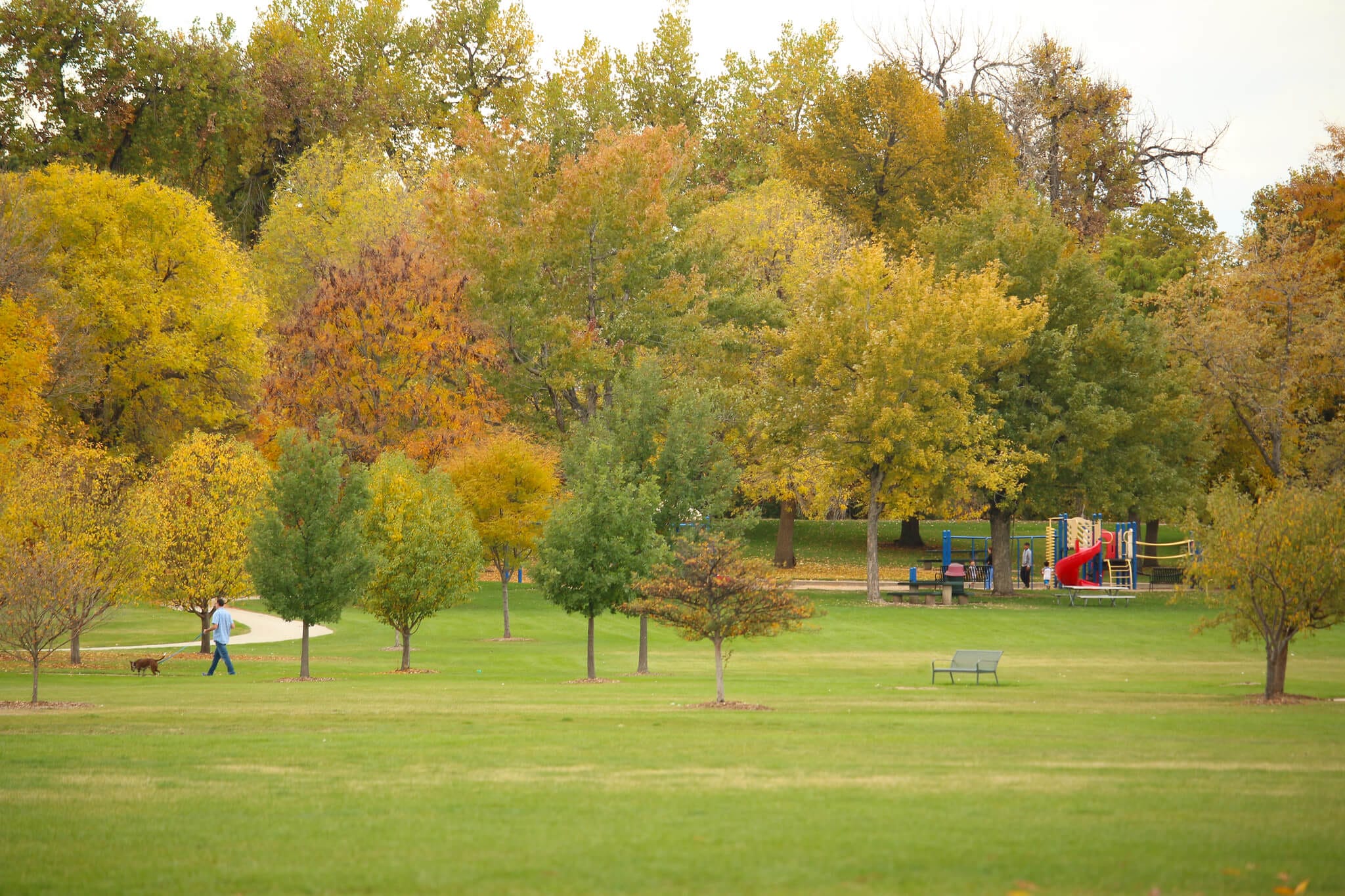Why are Parks Important?
March 15, 2023: At the Denver Park Trust, we have made it our mission to support parks. But, why? Why are parks so important?
As countless studies have shown, parks and open space are a vital source of both physical and mental wellbeing for humans. Parks provide innumerable benefits for people, our communities, and the environment.
Using data from over 40 cities, the 2016 journal article “Public Parks and Wellbeing in Urban Areas of the United States,” documents several ways in which parks have been proven to enrich our lives:
Promoting physical activity: It has been widely documented at both the neighborhood and city level that public parks contribute to an increase in physical activity level of their surrounding communities (p. 11). Specifically, several studies of neighborhoods and cities suggest that closeness to and use of urban green space is “positively associated with the physical activity levels and cardiovascular health of urban residents” (p.3). Parks provide a space for people to engage in physical activity, such as walking, jogging, cycling, and sports. Regular physical activity has been linked to improved physical and mental health, and parks provide a convenient, free, and accessible space to get active.
Providing social opportunities: Parks have been shown to help build a sense of community and belonging. The study conducted in the article found that cities with a greater percentage of parkland had a demonstrably stronger sense of community wellbeing – the sense of engagement individuals have with the place where they live (p. 8). Research from several previous studies further confirms that parks and green spaces help facilitate and increase “social connections, neighborhood satisfaction, and community attachment” (p. 3). By providing comfortable community gathering spaces, parks offer places to connect with friends and neighbors, as well as feel a sense of stewardship toward one’s own community.
Supporting mental health: Parks support people’s mental health in several ways. Parks offer people an opportunity to connect with the beauty of nature and the outdoors. Connecting with nature has been shown to be linked with an increase in both mental and psychological health (p. 11). It has been found that people living in greener areas display better mental health indicators than those who live in less green settings (p. 3), and that parks and green spaces are associated with reduced symptoms of depression, anxiety, and stress.
Supplying environmental benefits: Parks supply humans with numerous environmental benefits, which also include indirect benefits to health. Parks and green space contribute to ecosystem services such as air and water purification and reduction of heat effects, as well as the potential for increased access to nutritious fruits and vegetables through community gardens (p. 3, 11).
Overall, parks can enrich people’s lives by providing opportunities for physical activity, social connections, mental relaxation, and environmental benefits. As the article summarizes, their findings suggest that “cities with higher concentrations of parks and green spaces provide greater opportunities for happiness” than cities with fewer park spaces (p. 3). In other words, parks have the potential to make people both happier and healthier.
The Denver Park Trust is working hard to provide these benefits to all Denverites by expanding equitable access to parks in Denver. We believe that every resident, in every neighborhood, deserves to be within walking or rolling distance of a high-quality park, so that they may experience all the amazing benefits that parks have to offer.
Reference:
Larson LR, Jennings V, Cloutier SA. (2016). Public Parks and Wellbeing in Urban Areas of the United States. PLoS ONE 11(4): e0153211. doi:10.1371/journal.pone.0153211
https://journals.plos.org/plosone/article/file?id=10.1371/journal.pone.0153211&type=printable

